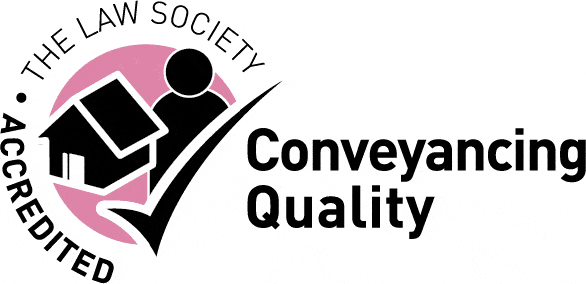If you buy a home for the first time, you can find the process confusing and demanding. About 86% of people in the United Kingdom want to own homes. However, before you purchase a home, you want to know whether owning one is correct. This guide can help you if you are a first-time home buyer.
 1. Save enough for a deposit
1. Save enough for a deposit
It would be best if you started saving for a home purchase to take advantage of the government bonus when you buy it. In case you have not started doing so, you want to consider starting the saving. You will need to have been saving for at least one year before you can enjoy the bonus of up to 25%. Almost all mortgage lenders will want you to have a deposit of at least 5%.
2. Consider a mortgage
Apply for a mortgage agreement in principle (AIP) before hunting for a house. AIP shows that a lender would, in principle, want to lend to you. The AIP document can be presented to estate agents to show you are a serious buyer. There are also Help to Buy equity loans you can consider.
Most lenders can offer you a mortgage loan of 3 to 4 times your combined annual income – your income and that of others you are buying the property with. While you can use mortgage borrowing calculators, they will only provide rough estimates of the amount you can borrow. Other factors like credit history can affect the amount of mortgage to get from a lender. You need to talk to or engage with a mortgage broker to get more details about the amount you will likely receive as a mortgage loan.
3. Start house hunting
Researching the area you want to stay in and begin house-hunting would be best. Ensure you have real-life viewings of the homes to have a feel for the kind of property available for your budget. Acquaint yourself with the property prices in the areas you wish to reside in.
Ensure you engage with the agents after you have registered with them so that they can provide you with an inside view of the things happening in the market, including the property prices within the local area. The agents will also tell you if there are bargains. Have a property viewing checklist and use it whenever you view a home to avoid missing crucial details. You need to understand how to view a show home to avoid the brokers’ sales tactics to sell homes to potential buyers. If you aren’t careful, you could purchase an overpriced home because you didn’t have the property details adequately checked.
4. Make your offer
Once you have found the right property and feel you can confidently afford it, it is time to make an offer. If the market is more of a buyer’s market, it makes things easier for you. You can be able to pay under the property’s asking price.
While sometimes you may find that the market is a buyer’s market, things may be different at other times. Many factors affect your buying decision and the amount to offer. You must know how to negotiate if your offer has been turned down.
5. Apply for the mortgage
When your offer is accepted, you should now apply for a mortgage. A mortgage broker can help you with the application process. The broker can tell you the lenders likely to accept you for a mortgage and how much it can cost you monthly.
Since it can be complex to work out the best deal for a mortgage, you need to consider seeking a mortgage broker. The broker can help light up some of the issues you may not know about borrowing a mortgage. Even experienced home-movers tend to use the services of mortgage brokers.
6. Get a surveyor and conveyancer
Although the home you buy may look good, you always want to have a surveyor do a survey to pick up any issues with the property. A conveyancer or property solicitor handles the legal work involved in the home purchase process. Besides, a conveyancer will sort out issues like stamp duty land tax if you have to pay. Depending on where you live in the UK, you may find that the rules differ for first-time buyers. A stamp duty calculator can help you determine how much you pay.
7. Organize for removals and Insurance
You will need to make arrangements for removals as the moving day approaches. A removal company will shift your items and belongings to the new home. You can have a few quotes from different movers and choose the one that offers the best services and affordable moving prices. After exchanging contracts, you must also get your building’s Insurance on the new home. Consider reviewing the different home insurance providers to find the ones that homeowners highly rate.
8. Exchange contract and complete the purchase
Your conveyancers or solicitors and those of the seller will be involved in the exchange contract confirming the purchase of the property. Also, pay an exchange deposit of about 10% of the home price, but you can negotiate down if you have 5% saved up. The purchase must be legally binding. Complete the buying and move-in. You will need to pay the remaining amount so you collect the keys.
Conclusion
This guide will help you if you are purchasing a home for the time. Ensure you have a conveyancer to help you. With this guide, the home-buying process will be smooth since you can adequately prepare for most of the processes and activities involved in the home-purchase journey.
Here is a quick overview of some things you need to know about buying a home in the UK for the first time:
- Save for a deposit. This is the most crucial step, as you typically need a deposit of at least 5% of the property price. You can save for a deposit by cutting back on your spending, increasing your income, or using a government-backed scheme such as Help to Buy.
- Get a mortgage. Once you have a deposit, you must get a mortgage to finance the rest of the purchase. Many different types of mortgages are available, so shopping around and comparing interest rates and fees is essential.
- Find a property. Once you have a mortgage, you can look for a property to buy. There are several ways to find properties, such as online listings, estate agents, and word of mouth.
- Make an offer. Once you have found a property you like, you must make an offer to the seller. The seller may accept your offer, or they may counter-offer.
- Negotiate the price. If the seller accepts your offer, you must negotiate the price. This is where you can get the seller to lower the price.
- Exchange contracts. Once you have agreed on a price, you must exchange contracts with the seller. This legally binding agreement commits you to buying the property and the seller to selling it.
- Complete the purchase. Once you have exchanged contracts, you will need to complete the purchase. This is when you will pay the deposit and the rest of the purchase price, and you will become the legal owner of the property.
Here are some additional tips for buying your first home in the UK:
- Get pre-approved for a mortgage before you start looking at properties. This will give you an idea of how much you can afford and make the buying process go more smoothly.
- Be prepared to compromise. You may not be able to find the perfect property, so be prepared to compromise on things like location, size, or features.
- Don’t be afraid to ask for help. Some professionals can help you through the buying process, such as mortgage brokers, estate agents, and conveyancers.
If you are looking for Conveyancing Solicitors in Winchester and surrounding areas, contact Harrisons conveyancing solicitors today!

